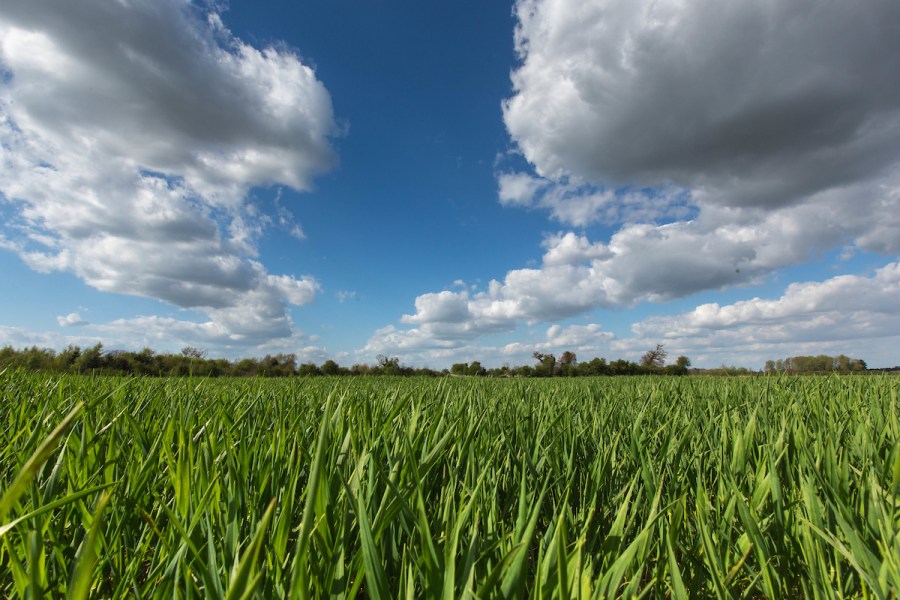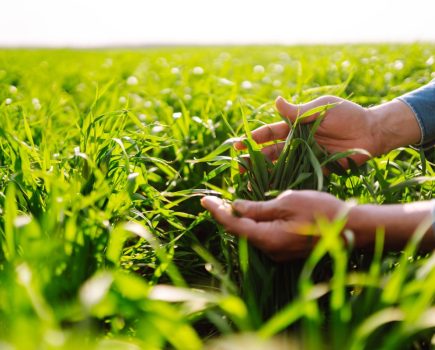There’s been a huge buzz around biostimulants lately, with many farmers and agronomists looking for complimentary additions to traditional chemistry to protect crops and boost production. CPM takes a look at Interagro’s product, Bridgeway.
By Charlotte Cunningham
While the weather and crop prices are very much out of growers’ hands, one factor which can be guaranteed is that at some point in the plant’s life, it will undoubtedly come up against stress – either due to the environment or pest/disease attacks.
This is where biostimulants come in to their own and Herts-based firm Interagro has been beating the biostimulant drum for a number of years – investing in extensive field trials to prove just how beneficial they can be for growers. In particular, they’ve found that specifically targeting early applications can protect yield and quality potential in cereals, sugar beet and potato crops.
What’s more, the effectiveness of the firm’s leading product, Bridgeway, has also been backed up by some pretty comprehensive trials data. So what exactly have these trials shown and how can Bridgeway be best used by growers?
Cereals
How could applying Bridgeway to my cereal crops benefit me?
Applying the product at T0 and T1 in winter cereals can protect crops from future stress events – such as drought – helping to insure yields.
How has this been proven in trials?
In two years of trials using 25 comparisons in cereals – at a range of application timings – Bridgeway delivered an average yield benefit of +0.7t/ha, worth around £126/ha, with the best results seen after early application as part of a programme.
Advice for application:
- Apply from GS14 in spring barley
- Apply 1-2 l/ha in winter cereals and follow up with 2 l/ha at T1
- Apply early, ahead of crop stress and maintain applications at key stages of crop development
For more information click here
Potatoes
How could applying Bridgeway to my potato crops benefit me?
Early and ongoing applications of Bridgeway can increase bulking speed and overall tuber yield, also helping to improve plant health.
How has this been proven in trials?
In replicated trials over two years, all applications of Bridgeway increased yield. The highest increase; +12.4t/ha – came from a program of three applications.
Advice for application:
- Get applications on early to protect yield potential and quality
- Apply 2 l/ha from emergence
- Follow up at stolon tip swelling and top up again at onset of tuber bulking
For more information click here
Sugar beet
How could applying Bridgeway to my sugar beet crops benefit me?
After emergence, early applications of Bridgeway can help to optimise beet health in the critical establishment phase.
It can also increase biomass and chlorophyll production, which improves sunlight absorption and can help boost final yield.
How has this been proven in trials?
In 2018 trials, three applications of Bridgeway increased the yield by 11t/ha (compared to untreated crops).
Advice for application:
- Apply Bridgeway from 2-4 TL to improve beet health and resilience to stress
- Follow up with an application at 6-8 TL and at tap root increasing to maximise yield and sugars
For more information click here
Bridgeway uncovered
Agricultural biostimulants are substances that have the capacity to modify the physiological processes of plants which provide potential benefits to growth, development, stress relief and subsequently yield.
Many biostimulants have a direct effect on plant health by boosting nutrient efficiency – whether improving uptake or reducing leaching – and some improve a plant’s ability to resist disease.
For those who haven’t yet come across it, Bridgeway is a plant-based biostimulant containing all 18 amino acids essential for plant health.
Developed to food grade standards, Bridgeway is proven to reduce crop stress and release the yield and quality potential of an array of crops.




